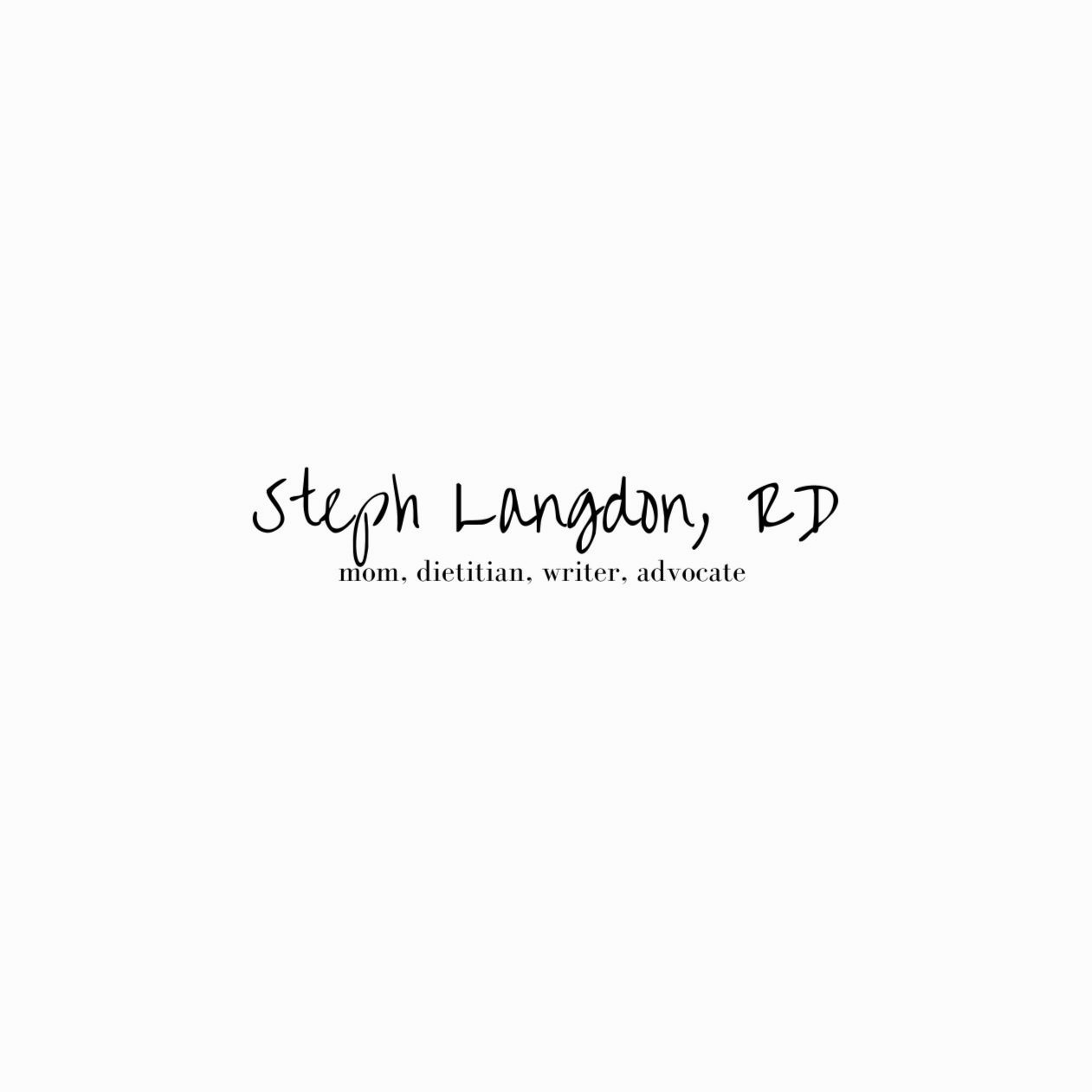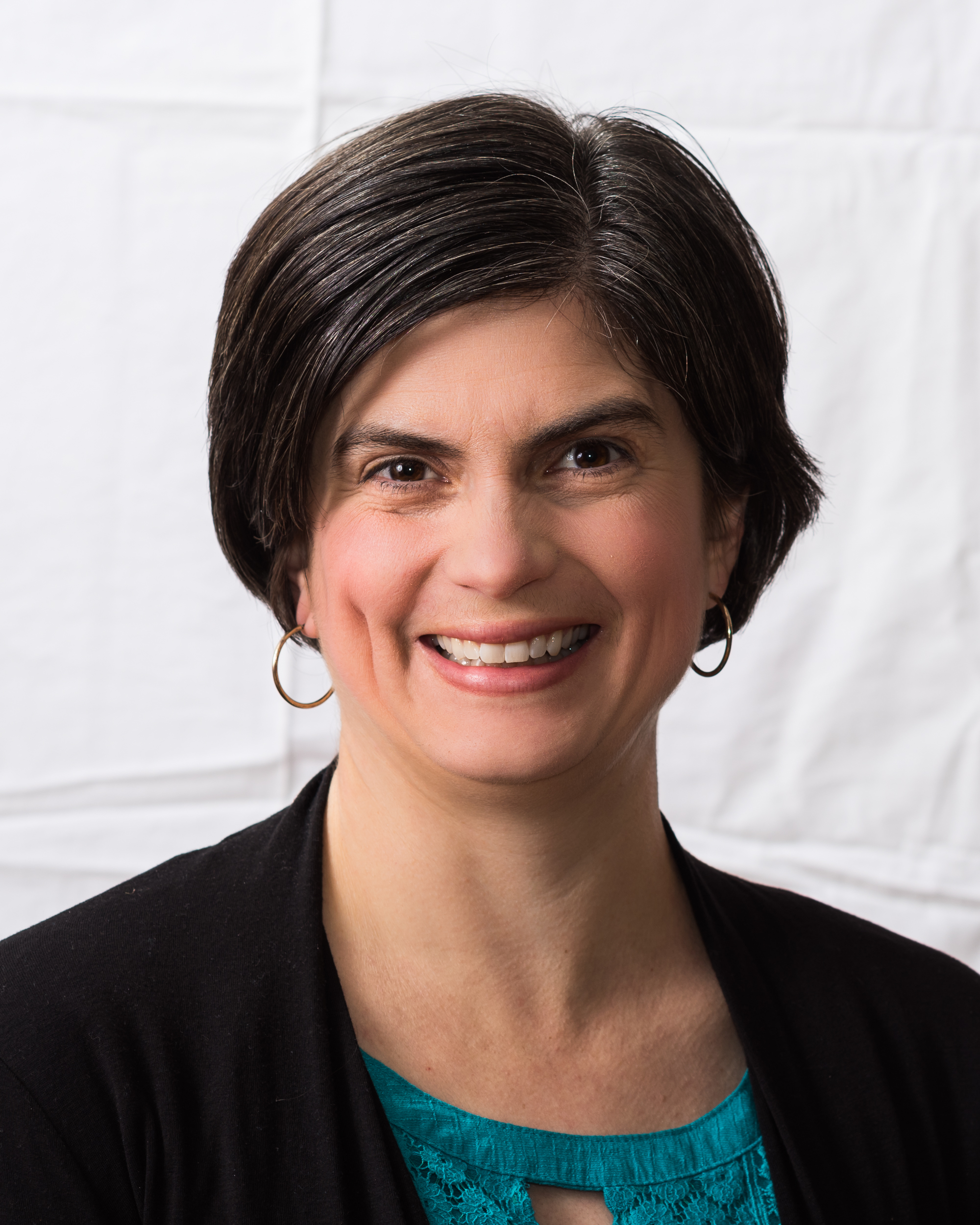Amy Reed, MS, RD, CSP, LD
AMY REED NUTRITION; PEDIATRICS
for something nutrishus
Since learning about the series, Amy had a career change - freelancing! This is a great reminder of how careers evolve, how experience in one area can lead to different opportunities and even how life stage can change our work/priorities. Like some others in the series, it seems she was destined to be a dietitian and has been interested in nutrition from a young age.
Why did you become a RD?
I was always fascinated with the healthcare field and I thought I wanted to be a nurse, but I really did not like needles. I grew up in a rural community in Ohio and was very involved in the 4-H program, where I took food and nutrition projects. 4-H was probably the activity I enjoyed the most growing up. Since I liked my food and nutrition projects my mom suggested I should look into being a dietitian. I then researched it and thought it was a good fit since it was in healthcare, but not with needles.
What area of dietetics do you work in?
I have worked in pediatrics my entire career (20 years).
How would you explain what you do?
I am a pediatric dietitian that focuses on educating families and the public on feeding infants, children, and teens.
What are your ‘typical’ daily/weekly tasks?
I just became a freelance RD recently; therefore, I do not have an exact routine. I have the goal of getting one blog post written per week, plan posts for my Facebook page at least 5 days per week. I am employed by a pediatrician’s office to see their patients 1 day per week. In July I will be starting a private practice where I see pediatric patients 1 day per week. In addition to all of the above I am state provider for the children with medical handicap program in Ohio. In this role I have the opportunity to provide home visits to families needing nutrition care.
Prior to becoming a freelance RD I worked at a large pediatric hospital for 18 years. I worked both inpatient and outpatient. When working inpatient I mostly provided care for patients that were critically ill and my days started by rounding with the medical team and then after rounds I spent time updating and changing parenteral nutrition orders and enteral feeds. In the afternoons I typically completed assessments and talked with families that needed assistance. As an outpatient RD there was typically a clinic you were assigned to cover or you had patients scheduled. As an outpatient RD I spent more time following up on the phone with families. I honestly enjoyed both roles of being an outpatient and inpatient RD, but what I am doing now serves the needs of my family better.
What has been your career path?
I got my first job at Cincinnati Children’s Hospital in March of 1999. I recently, left that job, but while I was there I covered multiple areas of pediatric nutrition. These areas included hematology, bone marrow transplant, intensive care, airway reconstruction, neuromuscular clinic, general outpatient clinic, and most recently feeding team and aerodigestive center. It was amazing to work there with some of the best physicians in the country, however, due to some personal issues I needed to step away to try and develop a more flexible schedule for myself and my family.
What advanced education or special training do you have?
After I completed my internship I knew that I wanted to work in pediatrics so I completed a pediatric fellowship through Indiana University at Riley Children’s Hospital. I completed my master’s degree in 2004 and then I also have my CSP (certified specialist in pediatrics) through CDR.
In an ideal world, what does the industry look like 5 years from now?
The top priority in our industry is to continue to work toward reimbursement of services for dietitians. I know there have been great strides with that in the last several years, but we have a long way to go. Along with that our profession needs to work to showcase the RD as the nutrition expert to educate the public. Jill Castle, of The Nourished Child, has said that as a society we spend so much time educating people how to have a baby with the multitude of classes that they can go to, but what support is there after the baby is born. Parents have the responsibility to feed and nurture a child for 18 years and if we have more educational supports available to educate families on feeding maybe the rate of chronic disease will eventually decrease because we have treated it on the front end. Registered Dietitians need to be leaders in teaching all families how to feed and nuture their children for a healthy future. It would be great if everyone were entitled to see a dietitian yearly (kind of like for a nutrition check-up) to see what is going well and what could be improved. The way the current system works patients are referred to dietitians when there is a problem and it would be nice to have a more proactive approach.
What misinformation about RDs would you like to clear up?
I think it is important that the public know that we do a lot more than talk about what people should eat. As a pediatric dietitian I evaluate a child’s intake, their current growth, growth potential, family dynamics, activities, and past medical history. The intake is only a portion of what goes into a nutrition assessment.
What would you like people to know about RDs?
That RDs are real people. Our kids can be challenging to feed, we sometimes like to have a cookie, and our family does not always like what we make.
What are challenges you encounter as a RD?
I really loved working in a hospital setting and being part of a team, but as my kids got older I felt like I was not adequately meeting the needs of the families that I worked with at the hospital or my own family. I wanted to be there 100% for my patients because they were sick and had questions, but I realized I could not be there 100% for everyone and I had to make my family a priority.
What do people think that you do for a living?
For the most part I think people think I educate people how to eat better.
What are you passionate about in dietetics?
I am passionate about making sure everyone has access to good information about nutrition and food and that all people have access to food that will help them live an optimal life.
What makes RDs unique/different from other nutrition/wellness professionals?
I think the diversity of our training is what makes us unique. In our schooling we are really introduced to all the areas of dietetics. As an RD you are familiar with clinical practice, wellness, and public health practice and being familiar with all these areas makes you an ideal person for someone to come to with nutrition questions. Our training is not limited to what one person believes, it is rooted in the science of many.
What is your favourite meal?
I love a really good Italian meal.
What tip(s) would you give to our readers?
If there are any future RDs reading this I would strongly encourage them to not narrow too much and be open to possibilities. I may have always worked in pediatrics, but when I started I thought the only thing I wanted to be was a NICU RD. I spent the first several years of my career hoping and praying that a position would come available. After a while I realized that it was such a blessing that I had the opportunity to cover different areas of pediatrics because I had gained so much knowledge. It is this vast experience that has helped me to take this leap to try and start my own practice and I believe families I work with will appreciate the experience.
More about Amy:
Blog: www.amyreednutrition.com
Facebook: Amy Reed Nutrition
Twitter: @rdn_amy
Pinterest: Amy Reed Nutrition, LLC
Instagram: @amyreednutrition
Thanks Amy!

